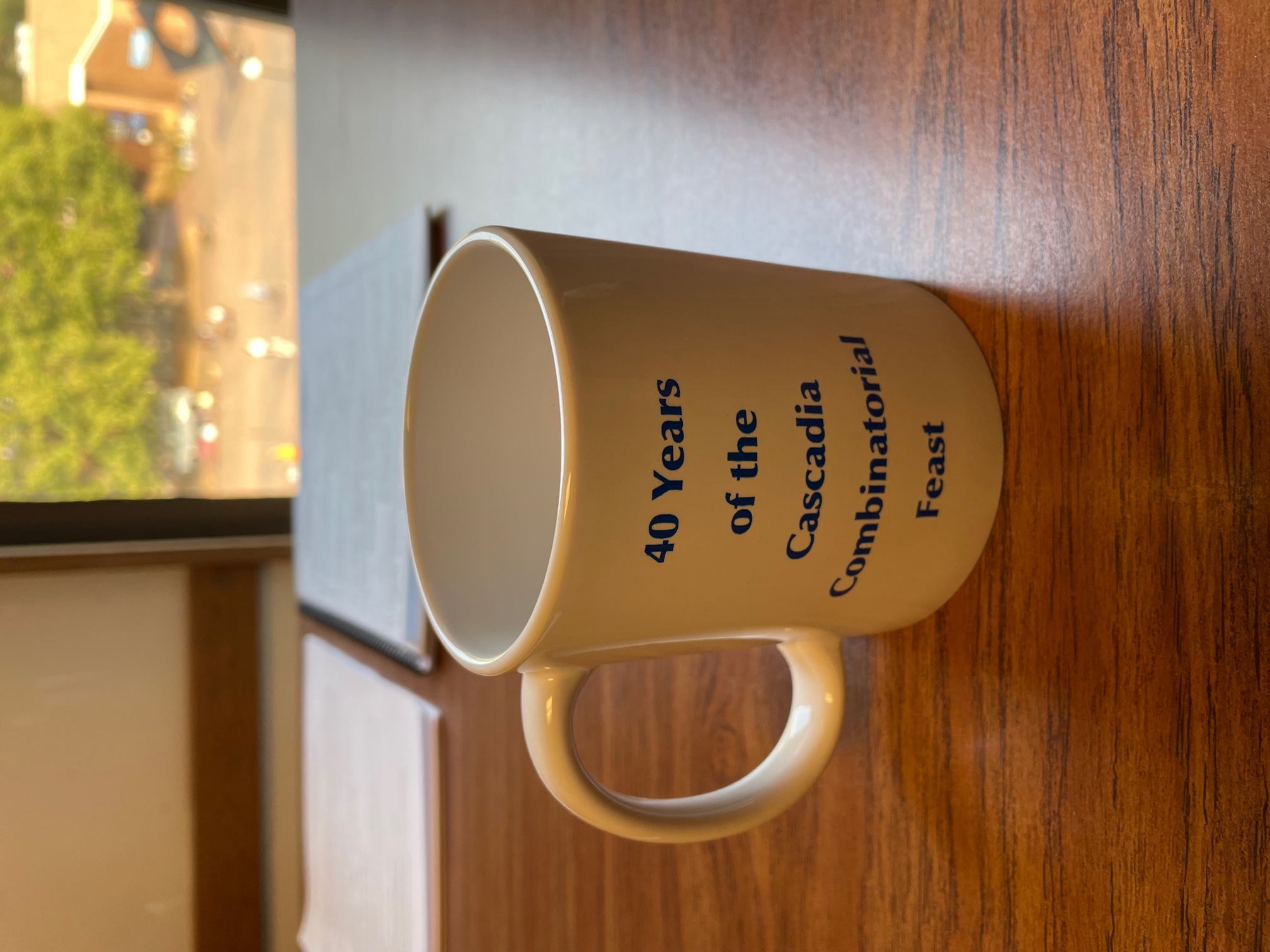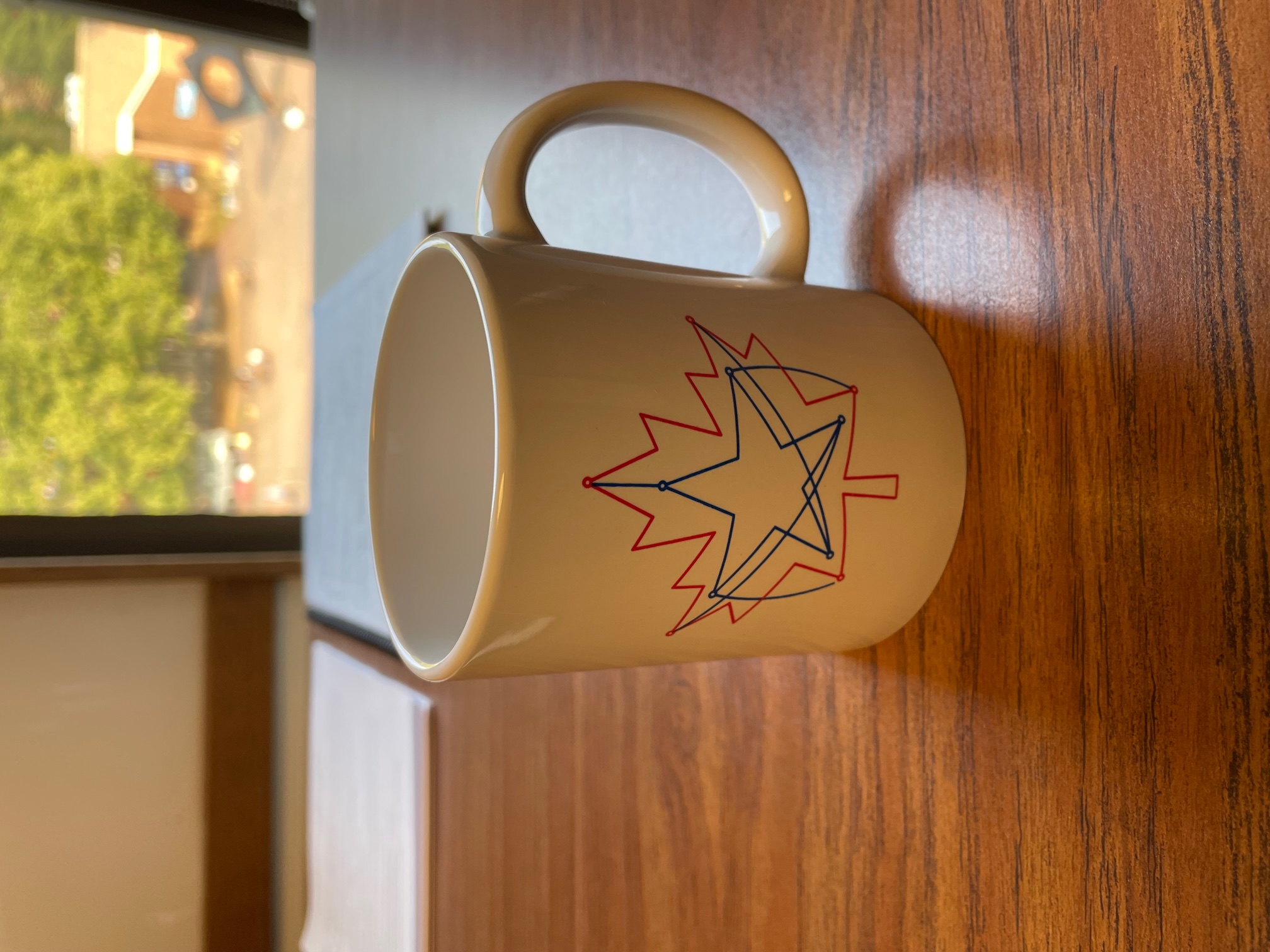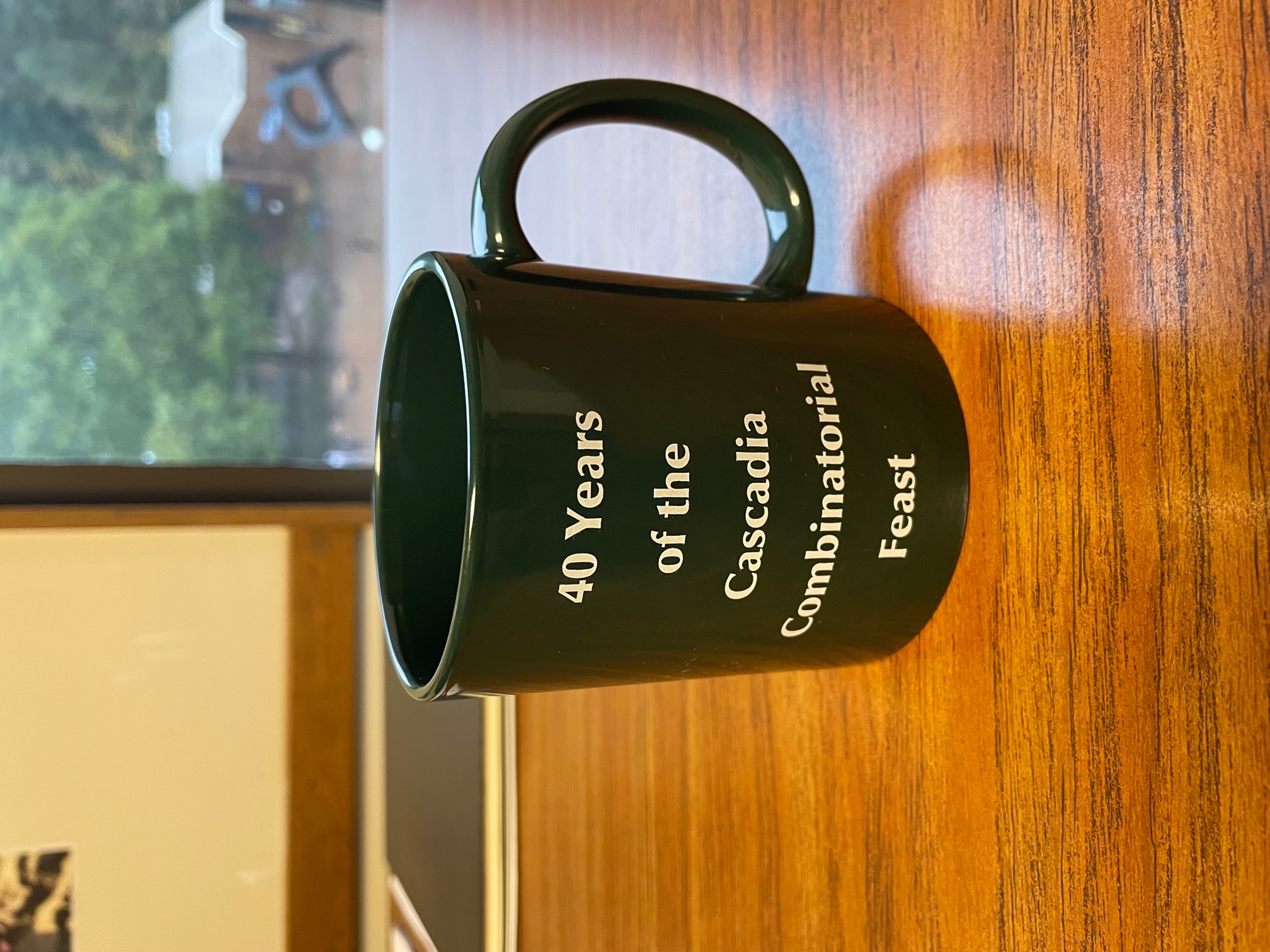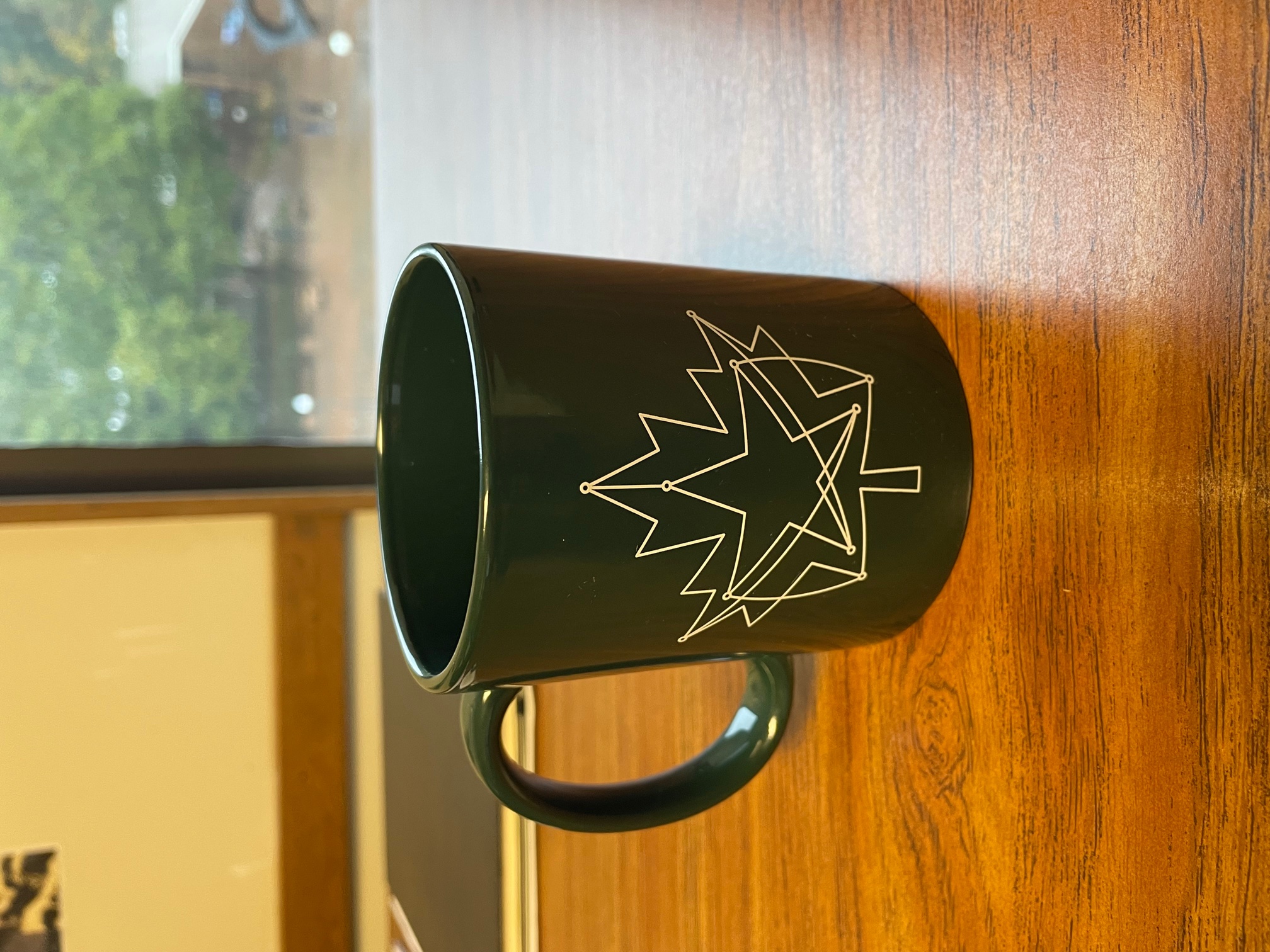
Cascadia Combinatorial Feast Fall 2024
University of Victoria
October 26, 2024
About the Cascadia Combinatorial Feast
The Cascadia Combinatorial Feast (formerly known as the Combinatorial Potlatch) is an annual, floating, one-day conference. It has been held for many years at various locations around Puget Sound and southern British Columbia, and is an opportunity for combinatorialists in the region to gather informally for a day of invited talks and conversation. While most who attend work in, or near, the Puget Sound basin, all are welcome. Typically there are three talks given by speakers who are visiting or new to the area, along with breaks for coffee and lunch. Many participants remain for dinner at a local restaurant or pub.
In 2020, we decided to change the name of the conference. The original name, Potlatch, referred to a ceremonial feast among certain First Nations of the northwest Pacific coast. You can read more about Potlatches here.
The Fall 2024 conference is being hosted by the Department of Mathematics at the University of Victoria in Victoria, BC on Saturday, October 26, 2024.
Significant funding is being provided by the Pacific Institute for the Mathematical Sciences and the Coast Combinatorics Conference fund. Their support is gratefully acknowledged.
More information, including a history and links to previous conferences, is at the Cascadia Combinatorial Feast Home Page.
Schedule
A tentative schedule follows.
9:30 AM Coffee at The Cove (across the ring road from the Clearihue Building)10:15 AM Melissa Huggan: Cops and robbers variants: recent work and open problems
11:15 AM Saieed Akbari: A linear lower bound for the square energy of graphs
12:00 PM Lunch at the Ross Bay Pub
2:10 PM Short talks by Benjamin Buckley, John Gimbel, Krishna Narayanan and Haley Freigang
2:30 PM Coffee at The Cove
3:00 PM Jonathan Noel: How to make a regular tournament "look random"
5:00 PM Happy hour and Dinner at Bard and Banker
Talks and Abstracts
Saieed Akbari, Sharif University (visiting Simon Fraser University)
A linear lower bound for the square energy of graphs
Let $G$ be a graph of order $n$ with eigenvalues $\lambda_1 \geq \cdots \geq\lambda_n$. Let \[s^+(G)=\sum_{\lambda_i>0} \lambda_i^2, \qquad s^-(G)=\sum_{\lambda_i<0} \lambda_i^2.\] The smaller value, $s(G)=\min\{s^+(G), s^-(G)\}$ is called the square energy of $G$. In 2016, Elphick, Farber, Goldberg, and Wocjan conjectured that for every connected graph $G$ of order $n$, $s(G)\geq n-1.$ No linear bound for $s(G)$ in terms of $n$ is known. Let $H_1, \ldots, H_k$ be disjoint induced subgraphs of $G$. In this talk, we present the following inequality \[s^+(G)\geq\sum_{i=1}^{k} s^+(H_i) \quad \text{ and } \quad s^-(G)\geq\sum_{i=1}^{k} s^-(H_i),\] and then use this result to prove that $s(G)\geq \frac{3n}{4}$ for every connected graph $G$ of order $n\ge 4$. We also propose several open problems concerning $s^+(G)$.
Melissa Huggan, Vancouver Island University
Cops and robbers variants: recent work and open problems
Pursuit-evasion games have been vastly studied over several decades by dozens of researchers worldwide. A central focus of this research has been on the game of Cops and Robbers. Recently, modifying the ruleset or parameter of interest has led to many intriguing new research directions. In this talk, we will examine a few game variants by highlighting past work, recent discoveries, and open problems. The goal of this talk is to provide several ideas for research collaboration.
Jonathan Noel, University of Victoria
How to make a regular tournament "look random"
A "tournament" is a directed graph in which there is exactly one arc (directed edge) between each pair of distinct vertices. A tournament is "nearly regular" if every vertex has approximately the same number of outgoing arcs as incoming arcs. If we were to sample a tournament on $n$ vertices uniformly at random, then there is a very good chance that it will be nearly regular. A natural converse to this statement is that every nearly regular tournament "looks like" a random tournament; however, this is blatantly false! What we will show is that every nearly regular tournament with the "right number" of copies of certain substructures must "look like" a random tournament, meaning that the arcs are distributed in a nearly uniform manner. In more technical jargon, we obtain examples of substructures which "force quasirandomness" in nearly regular tournaments. This is joint work with Arjun Ranganathan and Lina Simbaqueba.
Lightning Talks
Benjamin Buckley, Simon Fraser University, Uniform sampling and visualization of 3D-reluctant walksJohn Gimbel, University of Alaska, A short proof of a result on zonal labels
Krishna Narayanan, Simon Fraser University, Monitoring edge-geodetic sets in graphs
Haley Freigang, University of Victoria, Minimally unavoidable graphs for a cycle of length 4
Registration
The Cascadia Combinatorial Feast has no registration fees. And we like it that way. The host institutions provide facilities, coffee and food for the breaks, and some support for speakers' travel.
Getting There
Victoria is on Vancouver Island, so a ferry or float plane will likely be part of your travel plans. This page has detailed listings for various services. Float planes and the Black Ball ferry (the MV Coho from Port Angeles) arrive in the harbour in central Victoria, and so place you within walking distance to many hotels. The morning run of the MV Coho should give you time to come directly to the talks if you take a taxi after clearing immigration.
The University of Victoria Campus is located away from the central downtown area. So if you wish to overnight where there are more hotels and restaurants, you will need to arrange transportation to/from the campus (bus, taxi). The number 4 bus departs from near the Marriott and goes to the campus.
If you are driving, Parking Lot 2 is suggested as your best option. $5 for the day.
Talks will be held in room C112 of the Clearihue Building, inside the ring road on the campus map.
Lodging
No special arrangements have been made for lodging. Here are some suggestions. Many hotels in Victoria offer a UVic rate, which attendees can ask about, but we recommend also checking online to make sure that's the best available rate.
- The James Bay Inn
- It is a 10-20 minute walk to the bus to UVic, unless you transfer.
- Helm's Inn
- Same general area as James Bay Inn. Maybe a bit closer to town.
- Best Western Plus Inner Harbour
- Close to ferry landing.
- Days Inn Victoria
- Close to ferry landing.
- Marriott Inner Harbour
- Convenient public bus to campus.
- Chateau Victoria
- Close to Marriott, but cheaper.
- Swans Suite Hotel
- Lots of character, but try not to get a room right over the pub.
- Delta Hotels by Marriott Victoria Ocean Pointe Resort
- On the waterfront.
Mugs
We still have a few of these left! They are free. First come, first served.
The logo was designed by Cobus Swarts, and the cost of the mugs was shared by the Coast Combinatorics Conference fund and the Department of Mathematics at Western Washington University.
 |
 |
 |
 |
Social Events
You are encouraged to join other conference participants at the (no-host) meals we have planned for the day.
Lunch: The Ross Bay Pub, 1516 Fairfield Road
Happy Hour: Bard and Banker, 1022 Government St.
Organizers
- Jane Butterfield, University of Victoria, jvbutter (at) uvic (dot) ca
- Nancy Ann Neudauer, Pacific University, nancy (at) pacificu (dot) edu
- Amites Sarkar, Western Washington University, amites (dot) sarkar (at) wwu (dot) edu
- Gary MacGillivray, University of Victoria, gmacgill (a) math (dot) uvic (dot) ca, Local Arrangements Chair